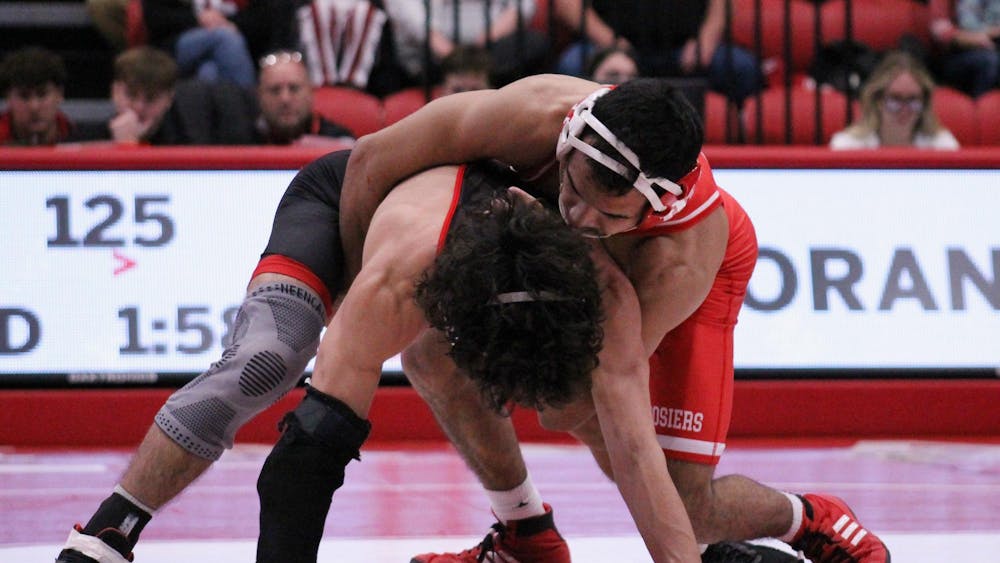During the 2001 fiscal year, IU received more private gifts and grants than any other public university in the United States. Since then, IU's fundraisers have been sweating bullets to keep up that pace in the slowing economy.\nDonors gave the University more than $300 million last year, making up 14 percent of IU's $2.1 billion operating budget, according to IU Foundation reports.\nThe total for 2002, which will be released next month, won't beat the 2001 record partly because of the weak economy, said Barbara Coffman, executive director of communications at the IU Foundation.\nBut to beat the economy, IU fundraisers have been working extra hard by improving their communication with donors.\n"One of the primary factors that affect giving is the economy," Coffman said. \nDuring economic downturns, some individual donors lose jobs, and some corporate donors suffer declining revenues. That forces them to reduce the slow down payments for their pledged gifts, causing annual private support for IU to decrease.\n"No matter how hard we worked, I don't think our number will be as high as last year's," Coffman added.\nThe major catalyst for the 2001 record performance is the Lilly Endowment, she said. It provided IU's life-science projects with $105 million, one-third of the $300.9 million the school received from the private sector that year. This year saw no such gifts.\nStill, the picture isn't totally gloomy, as IU will likely have the third best year ever, Coffman said. \nThe Foundation plans to publish the official results of 2002 in September after having them examined by an independent auditor.\nCommunication with alumni may be a key to counter the slow economy.\n"We are devoting a lot of time and attention to our corporate and foundation donors, hoping that once the economy turns around, they are going to remember that," said Richard Dupree, executive development director at the business school.\nThe Kelley school has cared especially about corporate donors in Silicon Valley and Wall Street, two major areas mauled by the recent economic recession, Dupree said. It has offered them faculty consultations, student interns and extra time to pay off their pledged gifts, hoping for their recovery and future paybacks.\n"We are not at all turning our back on them," he said.\nPartly because of these efforts, the Kelley school should see a record in private support for the 2002 fiscal year when audited, Dupree added. \nIn 2001, the Kelley school's annual fund, which solicits up to $10,000 a donor through direct mailing and phone calls, marked $2 million for the first time in history. \nThis year's figure, though not yet audited, will be even higher, Dupree said.\nSchool of Public and Environmental Affairs should also see a rise in private support for 2002, said SPEA's Development Director Susan Johnson. \n"I think the events of September 11 really heightened people's awareness of the critically important roles that public servants play," she said. \nAlso, SPEA fundraisers have contacted alumni more often than ever and tried to better convey financial needs, respect for donors and school activities, Johnson said.\nSchool of Education is also trying to improve communication with alumni, said Sarah Baumgart, External-Relations Director at the Education School.\nLike most departments, education focuses on financially savvy "major-gift" donors, who provide $25,000 or more, Baumgart said.\n"So it's not a matter of more phone calls, but a matter of developing long-term relationships with donors," she said.\nFor 2002, the education school will post a five-year high in annual private support, Baumgart said. But the increase may be due to the rising amount of payments from donors who pledged gifts a few years ago, she said. The effect of the economic downturn will be seen later.\nIU Foundation is running three fundraising projects partially designed to counter the slow economy, Coffman said. One targets international alumni, another targets women and the other is called "planned giving," which targets baby-boomers.\n"We realized that (baby-boomers are) a bigger than ever pool of prospective donors for planned gifts," Coffman said. \nDonating to their school gives baby-boomer alumni a way to contribute to the betterment of society, she said.\nIn the past five years, the private support for IU excluding non-governmental grants increased from $60 million to $230 million. This fiscal year may break the trend, but "it's a way of fundraising life," Coffman said.
Poor economy slows IU fundraising
This year's total will not beat last year's record donations
Get stories like this in your inbox
Subscribe





